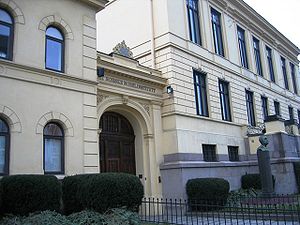 Image by Denis Collette...!!! via Flickr
Image by Denis Collette...!!! via Flickr
Tomorrow is my final exam for PACS 201: Roots of Conflict, Violence and Peace, so I’ve been busily reviewing as much of the course material as I can. (No, I didn’t just start studying today! But I’ve been trying to do a quick final run-through before the big day.) A couple of the readings got me thinking about ideas I wanted to post, and I really liked the way one thing led to another.
People successfully resolve conflict in a peaceful manner everyday, all over the world. It’s not news. In this light, perhaps it is a good thing that it’s mostly only “bad news” that gets all the media attention. After all, if what’s being reported is what’s uncommon, I’d rather it was bad stuff that was uncommon, wouldn’t you? The downside to this, however, is that what is reported starts to seem like it must be more common than it is, since it’s all we hear about, and this can become a self-fulfilling prophecy.
I am perhaps as guilty of this as the evening news. While I have sometimes posted about positive things that are being done in the world, it has been too easy much of the time to use this blog to write about the latest bit of bad news that’s got me upset. Which I’ll still continue to do. BUT. I want to balance the bad news with as much good as I can find to share with you, and I invite you to
help me out by pointing me in the direction of good news items you’ve come across.
One of the people I learned about in this course is Elise Boulding. I’ll quote
wikipedia to give you a quick bio:
Elise M. Boulding is a Quaker sociologist, and author credited as a major contributor to creating the academic discipline of Peace and Conflict Studies. Her holistic, multidimensional approach to peace research sets her apart as an important scholar and activist in multiple fields. Her written works span several decades and range from discussion of family as a foundation for peace, to Quaker spirituality to reinventing the international “global culture”. Particularly of note is her emphasis on women and family in the peace process.
She is considered to be one of the most influential peace researchers and activists of the 20th century.I also found an
interview with her on the
Spirit of Ma’at website which I hope you will take the time to read. In it she talks about the vast numbers of people who are, right now, working for peace, and she says that if only more people realized how much peace work was already being done, it would “change world consciousness.” She wants us to be aware, and to share our awareness, of the good work that is being done and who is doing it.
I had already come up with my “let’s share some good news here” idea before reading this interview, so I read this as a call to action. Elise Boulding is just one of the people I’d like to bring your attention to. There will be many more. If you know of anyone you’d like to see mentioned in PeaceRipples, leave a comment here, or
email me. We could all use a little more good news.
 Image via Wikipedia
Image via Wikipedia![Reblog this post [with Zemanta]](http://img.zemanta.com/reblog_e.png?x-id=d065a62c-0024-40f2-a20d-083e776cdbc6)

![Reblog this post [with Zemanta]](http://img.zemanta.com/reblog_e.png?x-id=5e5771e5-e88e-4fdd-bed1-84dd80de4391)


![Reblog this post [with Zemanta]](http://img.zemanta.com/reblog_e.png?x-id=f9bd7150-ea32-427f-9717-716903dc0f7e)
